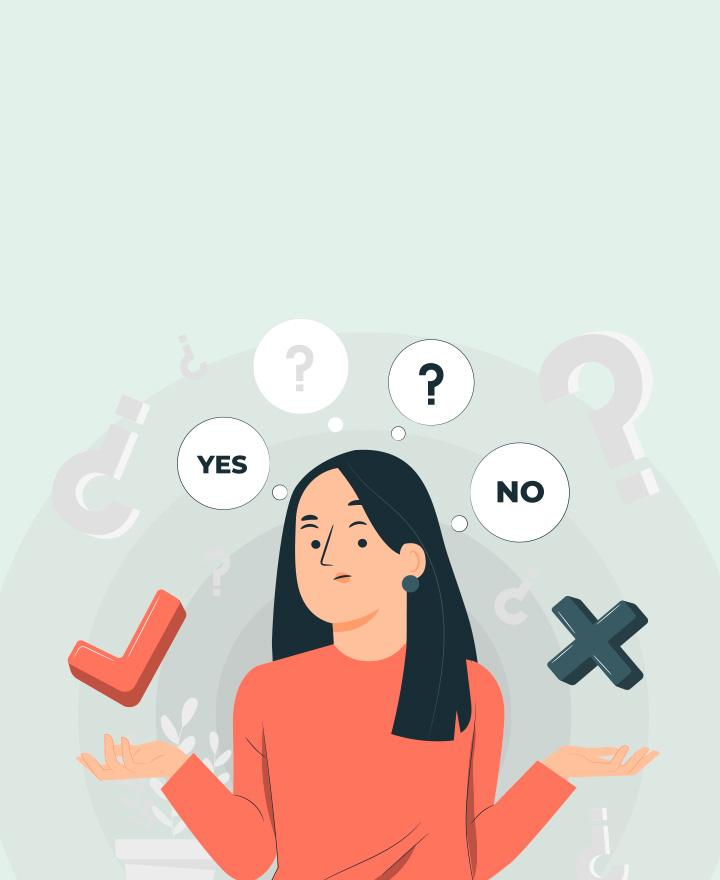

Is Drinking Coffee Healthy?
Coffee is more than just a warm start to your day. It can boost your energy, lift your mood, and even help your brain and heart stay healthy. But how much is too much? And is it safe to drink coffee every day? In this blog, you will find simple, clear answers. We will look at the benefits of coffee, the risks you should know about, and smart ways to enjoy it. Whether you drink coffee often or are simply curious, this guide will help you determine if coffee is beneficial for your health.
Potential Health Benefits of Coffee
Here are some ways coffee can help when taken in moderation:
1. It keeps your brain sharp
Coffee can keep you focused and alert. According to some research, coffee drinkers may be less likely to develop brain disorders like Parkinson's disease or Alzheimer's disease. Additionally, caffeine may enhance mood and short-term memory.
2. Good for your heart
Drinking two to three cups of coffee a day might lower your chances of having a stroke or developing heart disease. Coffee also lowers inflammation and improves blood vessel function.
3. It maintains the health of your liver
Regular coffee intake may help lower the risk of liver issues like fatty liver. According to one extensive study, those who drank three or more cups daily experienced less fat accumulation and liver stiffness.
4. May reduce the risk of type 2 diabetes
Your body may use insulin more effectively if you drink coffee, which could help control blood sugar levels. Research suggests that regular coffee drinkers may be less likely to develop type 2 diabetes, a condition often considered when evaluating the need for critical illness insurance.
5. Packed with antioxidants
Coffee contains a good amount of antioxidants that help protect your cells from damage. These compounds fight off free radicals, which may help slow ageing and reduce the risk of some diseases.
Risks and Side Effects of Coffee
Like many things, too much coffee can cause problems. The key is to drink it in moderation. Here are some common side effects:
• Poor sleep
Drinking coffee late in the day may make it hard to fall asleep. Poor sleep over time can harm your mental and physical health.
• Anxiety or restlessness
Too much caffeine may make you feel nervous, shaky, or uneasy. If you notice this, try cutting back.
• Stomach issues
Coffee may upset your stomach, cause acid reflux, or trigger heartburn, especially if you drink it on an empty stomach.
• Weaker bones over time
High caffeine intake may reduce how well your body absorbs calcium. This can affect your bone health. Make sure your diet includes calcium-rich foods.
• Caffeine dependence
Drinking coffee every day can lead to caffeine dependence. If you stop suddenly, you may get headaches, feel tired, or be irritable.
If coffee is causing any of these problems, try cutting it down slowly. Listening to your body is the best way to find what works for you.
Special Considerations for Caffeine Intake
Caffeine affects people differently based on age, health, and medication. Pregnant or breastfeeding women should limit caffeine consumption to 200 milligrams a day. Those with high blood pressure may need to cut back. Children, teens, and people with anxiety should avoid caffeine, as it can worsen symptoms. If you are unsure what is right for you, speak to your doctor. Having health insurance can help you access expert advice and necessary tests with greater ease.
Is It Okay to Drink Coffee Daily?
Yes, most healthy adults can drink coffee every day. Having 3 to 5 cups a day, which is about 400 milligrams of caffeine, is usually safe. Studies show that this amount does not increase health risks and may even support your heart, brain, and overall health.
To keep your habit healthy, choose black coffee or add milk without sugar. Avoid sweet drinks like flavoured lattes or bottled coffee. Try not to drink coffee late in the day, and remember to drink plenty of water.
So, is coffee good for health? Yes, but it should not replace a balanced diet.
Conclusion
While coffee can offer a quick boost and even some health benefits, it doesn’t work the same way for everyone. Some people may experience side effects like trouble sleeping, an upset stomach, or a fast heartbeat. If you notice any unusual symptoms, it’s best to speak to a doctor. Having a good health insurance plan can make this easier by helping you cover the cost of check-ups, tests, or treatments, so you can focus on feeling your best without worrying about the bills.
One of the important components of our overall wellness is also being financially secured. Healthcare emergencies can happen any time, but a good health insurance policy can protect you from such uncertain situations. To know more about Wellness and other health related tips, visit the wellness corner.
Sources: mayoclinic.org, stopcancerfund.org, healthline.com, hopkinsmedicine.org
Disclaimer: This blog provides general information and discussions about health and related subjects. The information and other content provided in this blog, website or any linked materials are not intended and should not be considered or used as a substitute for medical advice, diagnosis or treatment. Kindly contact your doctor before starting a new medicine or health regime.
Related Articles
Should You Drink Coffee Before a Workout
Black Coffee Benefits for Health
Coffee for Weight Loss : How it Works
How Much Caffeine Is Safe During Pregnancy?
Published on July 30, 2025














 Health Insurance
Health Insurance  Travel Insurance
Travel Insurance  Car Insurance
Car Insurance  Cyber Insurance
Cyber Insurance  Critical Illness Insurance
Critical Illness Insurance
 Pet Insurance
Pet Insurance
 Bike/Two Wheeler Insurance
Bike/Two Wheeler Insurance  Home Insurance
Home Insurance  Third Party Vehicle Ins.
Third Party Vehicle Ins.  Tractor Insurance
Tractor Insurance  Goods Carrying Vehicle Ins.
Goods Carrying Vehicle Ins.  Passenger Carrying Vehicle Ins.
Passenger Carrying Vehicle Ins.  Compulsory Personal Accident Insurance
Compulsory Personal Accident Insurance  Travel Insurance
Travel Insurance  Rural
Rural